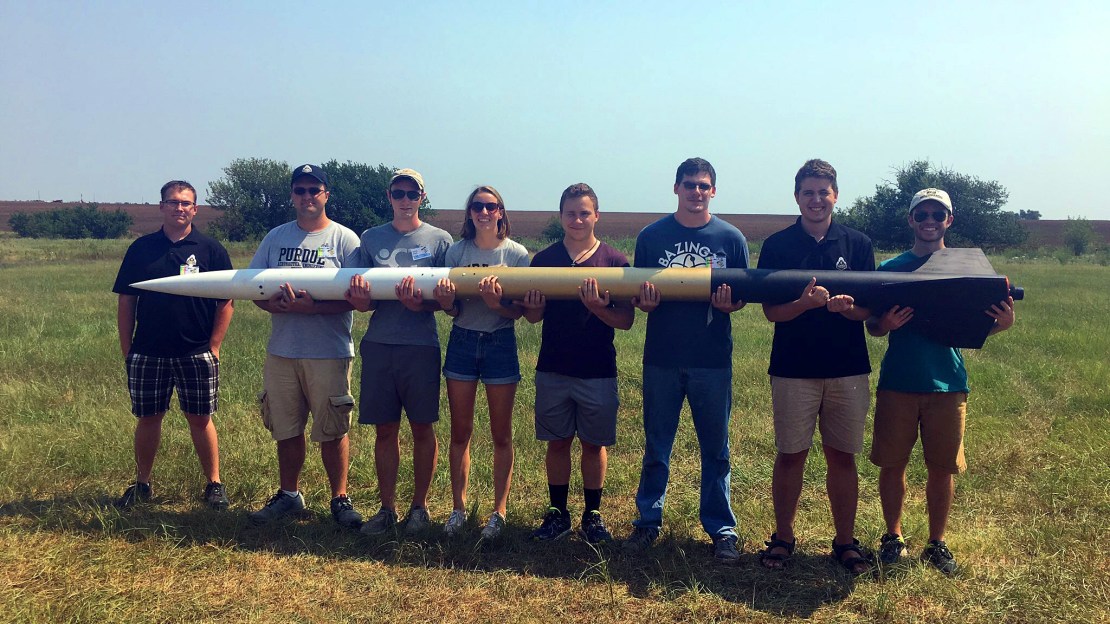John Tolley, March 5, 2018
From the original Mercury 7 to the first person to walk on the Moon to the countless other astronauts and engineers who have proudly called themselves Boilermakers, Purdue has a long and storied history with space exploration. So, it should come as no surprise that students today continue that tradition, forging new paths into the sky.
Currently, the Purdue Space Program, a student rocket engineering program, is undertaking an ambitious project to design, build and launch a methane-fueled rocket as part of the $100,000 FAR-MARS (Friends of Amateur Rocketry-Mars Society) Prize competition.
More common solid-fueled rockets are relatively simple in comparison to one which uses methane, a liquid fuel that requires sophisticated plumbing and control systems in addition to robust refrigeration to operate properly.
In a recent profile on the Purdue University News website, Space Program team member Cat White explained why focusing on liquid methane as a fuel source is so important in terms of our future space exploration goals.
?Liquid methane is a relatively new experimental fuel source, and there isn?t a lot of data on it,? said White, who studies propellants as part of the School of Aeronautics and Astronautics. ?But there is a lot of interest, because if we end up traveling to Mars, it may have a lot of methane - which means we could potentially manufacture our own rocket fuel on the planet.?
As liquid methane is a hard-to-source commodity, the enterprising team has turned to their engineering know-how, building a condenser to turn gaseous methane into liquid.
To learn more about the Purdue Space Program and how they?re utilizing one of the largest propulsion labs on a university campus to reach their goal of 45,000 feet, follow the link above.







